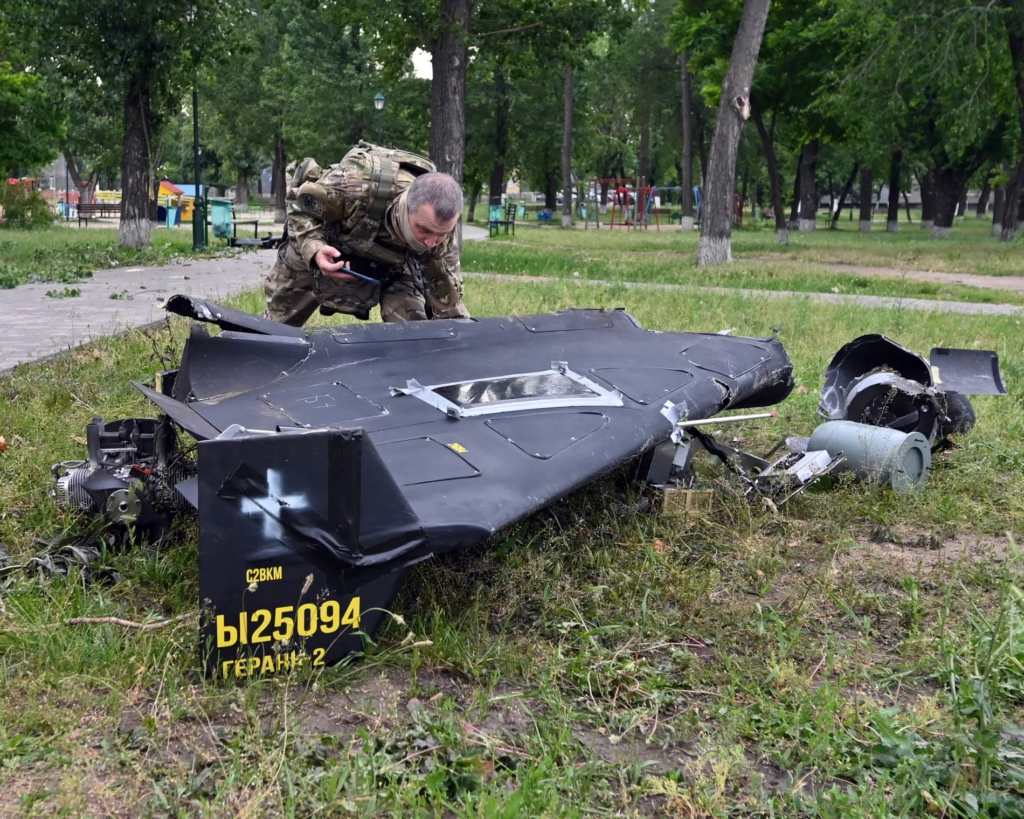Poland reported that multiple Russian drones violated its airspace on Tuesday during a large-scale Russian strike on Ukraine. The Polish armed forces confirmed that drones crossed into the country, prompting immediate defensive measures. Authorities urged residents in the eastern provinces of Podlaskie, Mazowieckie, and Lubelskie to remain indoors while operations to neutralize the drones continued.
Ukraine had earlier warned Poland about the approaching drones. In response, Poland scrambled its own aircraft and worked with NATO allies to deploy fighter jets and activate air defense systems. Temporary closures at several airports were ordered as radar systems went on full alert.
Poland’s defense minister Cezary Tomczyk said military operations to remove the drone threat were under way. He stressed that protecting national security remains the government’s highest priority.
The drone incident came shortly before Poland announced it will close its border with Belarus on Thursday. Prime Minister Donald Tusk said the decision was linked to “very aggressive” military exercises by Belarus and Russia. He also cited growing provocations from both countries as a direct threat to Poland’s security.
Poland’s president, Karol Nawrocki, echoed this concern, warning that Russia’s intentions could extend beyond Ukraine. He stated that permanent peace in the region cannot be guaranteed while Russian president Vladimir Putin continues to pursue military aggression.
Meanwhile, calls for tougher international sanctions on Russia are gaining momentum. US Democratic senator Richard Blumenthal urged Congress to adopt a bipartisan bill that would impose secondary sanctions on countries buying Russian oil, such as China, India, and Brazil. The bill is co-sponsored by Republican senator Lindsey Graham and has 85 supporters from both parties.
Blumenthal argued that Russia has used energy exports to finance its war and that stronger measures are needed. Former US president Donald Trump, who has signaled support for tougher sanctions, suggested the European Union should act simultaneously. The EU has already passed 18 rounds of sanctions and is preparing a 19th round, which could target countries helping Moscow bypass restrictions.
Reports also indicate that Trump discussed possible tariffs of up to 100% on Russian oil buyers during talks with European officials. US and EU representatives also debated how to manage frozen Russian assets and strengthen financial pressure on Moscow.
As diplomatic and security tensions rose, Ukraine faced another deadly attack. A Russian strike killed 24 elderly civilians in the Donetsk region on Tuesday. According to Ukrainian president Volodymyr Zelenskyy, a glide bomb struck a rural settlement at the moment pensions were being distributed. Ukrainian prosecutors opened a war crimes investigation into the attack.
The Ukrainian military said the bomb was a heavy aerial weapon designed to travel long distances before impact. There has been no immediate response from Moscow.
Ukraine’s air defense systems also intercepted waves of Russian drones targeting Kyiv early on Wednesday, highlighting the ongoing intensity of aerial assaults.
In another development, members of the European Parliament in Strasbourg accidentally approved an amendment that criticized the EU’s “militaristic strategy” in Ukraine. The motion, introduced by a German left-wing lawmaker, was passed due to a procedural mistake. Party leaders later admitted the error, but the decision was welcomed by populist parties across Europe, including Italy’s Five Star Movement, known for its pro-Russian stance.
The incident sparked controversy within the European Union, raising concerns about political unity as the conflict enters another year.
The latest drone incursions, border closures, and sanctions debates underline the deepening instability in Eastern Europe. With Russia continuing its airstrikes, NATO allies are strengthening their defense cooperation, while the EU and US explore new measures to curb Moscow’s funding sources.
For Poland, the combination of drone violations and Belarusian military drills marks one of the most serious security challenges since the start of the Ukraine war.


